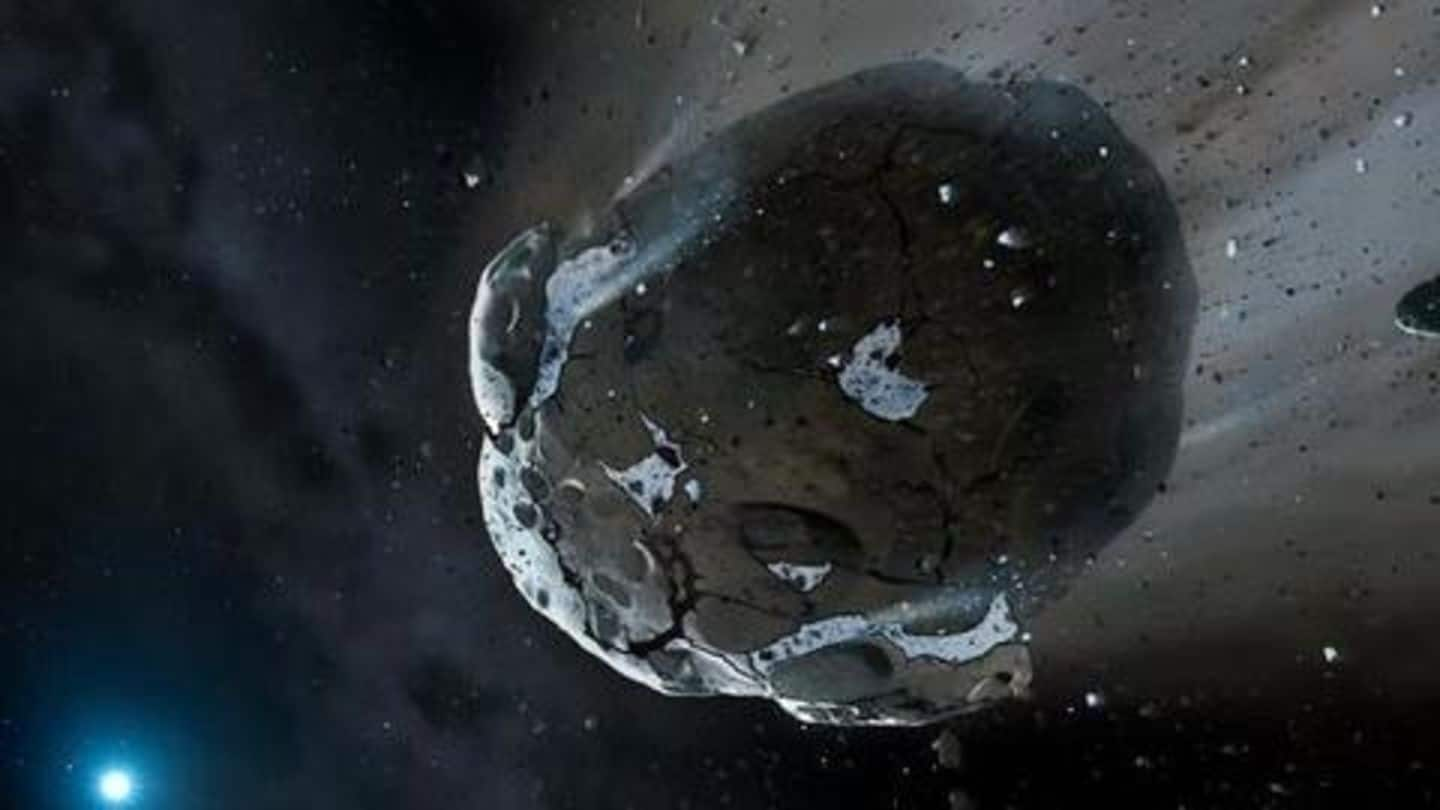
A ginormous asteroid will zoom past Earth this weekend
What's the story
A ginormous 'potentially hazardous' asteroid, nearly as big as the Empire State Building, is set to zoom past Earth this weekend. The space rock will make a close approach in a matter of hours, but rest assured that it will be a safe flyby, with no danger whatsoever to our planet and its inhabitants. Here is more about it.
Approach
Asteroid 163348 (2002 NN4) and its close approach
On June 6, asteroid 163348 (2002 NN4) will be making a close approach to Earth at a speed of 18,000 kilometers/hour. Many reports have said the rock is heading towards Earth, implying that it may pose some threat. But, the fact is, it will safely zip past our planet, flying as far away as 13 times the average distance between Earth and Moon.
Details
Why it is classified as 'potentially hazardous'?
While the space rock will fly by safely, it has been classified as a 'potentially hazardous asteroid' (PHA) due to its size and distance. NASA puts all asteroids that are bigger than 140 meters (460 feet) in diameter and capable of coming under seven million kilometers of Earth in this category. In this particular case, 2002 NN4 perfectly fits the description.
Size
This asteroid is as big as Empire State Building
Speaking in terms of sheer size, asteroid 2002 NN4 is pretty humongous. The rock is estimated to be 250-570 meters (820-1,870 feet) in diameter, which converts into the length of nearly five football fields or the Empire State Building. An asteroid this big could pose a threat to human life, and that is why NASA constantly tracks the orbit of known PHAs, their approaches.
Next pass
Next close pass not until 2029
That said, the next time this asteroid will make a close pass by Earth will be in 2029. It is important for astronomers to track the movement of these PHAs as their orbits can change over the years, with some moving away from our planet while others coming closer. For now, no identified near-Earth asteroid is projected to hit us in the near future.